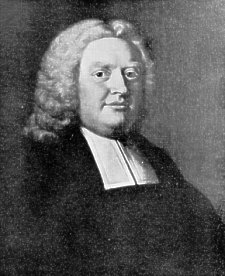 Character
of Bishop Hildesley.( from Cruttwell's Life of Bishop
Wilson.)
Character
of Bishop Hildesley.( from Cruttwell's Life of Bishop
Wilson.) Character
of Bishop Hildesley.( from Cruttwell's Life of Bishop
Wilson.)
Character
of Bishop Hildesley.( from Cruttwell's Life of Bishop
Wilson.)
Bishop Wilson was succeeded, and worthily so, by Dr Mark Hildesley, who made it the great and invariable rule of his conduct through his whole episcopate, to tread as nearly as possible in the steps of his excellent predecessor, though he often lamented his inferiority and the peculiarity of his situation in immediately following a man so remarkable for his piety and charity.Dr Hildesley was born at Marston, in the county of Kent, in the year 1695, and had his education at the Charter-house, from whence, at the age of nineteen, he was removed to Trinity College, Cambridge, of which college he was elected a fellow in 1723.
In February, 1724-5, he was appointed preacher at Whitehall, by Dr Gibson, Bishop of London; in October, 1765, he was presented to the rectory of Holwell, in Bedfordshire; and on the 27th of April, 1755, he was consecrated Bishop of Man, being installed at St Germain's on the 6th of August following. Robertson says:
" At the desire of the Duke of Athol, Dr Hildesley was nominated by the whole body of the English Bishops as a person worthy of wearing the mitre which Bishop Wilson by his virtues had so adorned."On his coming to the diocese he undertook the arduous task of getting the Scriptures translated and printed in the Manx language a work which had been begun by Bishop Wilson, who at his own expense had printed the Gospel of St. Matthew, and had prepared the other Evangelists and the Acts of the Apostles for the press. Impressed with the deepest solicitude and concern for the spiritual welfare of the flock committed to his care (he established a charity school at Kirk Michael), his lordship could have no rest till he had accomplished this glorious work, which he at last did, by the Divine blessing on his endeavours, and successful application to the Society for Promoting Christian Knowledge, together with the aid of many persons of eminence and distinction, who were pleased to patronise the undertaking. Dr Wilson [son of Bishop Wilson] sent him the first twenty guineas, and greatly assisted the work by giving up such parts as had been printed or translated by his father. At first he only printed the New Testament, the Common Prayer, the Christian Monitor, Lewis's Catechism, and Bishop Wilson's Form of Prayer for use in the Herring Fishery; but the benefactions coming in beyond his expectations, he was encouraged to set on foot a translation of the Old Testament entire, which, with the assistance of his clergy, he also happily accomplished. The clergy of the Island were particularly active in this good work, apportioning out their several parts, which they finished with zeal and judgment.
Dr Hildesley had this world so much at heart that he often said " he only wished to live to see it finished, and then he should be happy, die when he would.
He received the last part of the Bible on Saturday, to, the 28th of November, 1772, and emphatically sung his Nunc Dimittis in the presence or his family; and next day in the evening, after family prayers, he ups preached a lecture on the uncertainty of human life, how many instances were constantly happening in which people were deprived of their senses in a moment, thus in a prophetic manner foretelling his own death, for on Monday, after dining cheerfully at Bishop's-court with his family and one of his clergy, at he was seized with a stroke of the palsy, which in a moment deprived him of his senses, and in this situation he remained till the Monday following, when he died in the seventeenth year of his consecration, and was buried with his wife, under a black marble monument, by the side of Bishop Wilson - agreeable to his own desire that he might be united in death with that man, whose example he had endeavoured to imitate while living.
J. Gelling A History of the Manx Church Douglas:Manx National Heritage 1998
W. Butler Memoirs of Mark Hildesley D.D. London 1799
R.L. Hine Hitchin Worthies London: George Allen and Unwin 1932 pp143/165
|
|
||
|
Any comments, errors or omissions
gratefully received The
Editor |
||